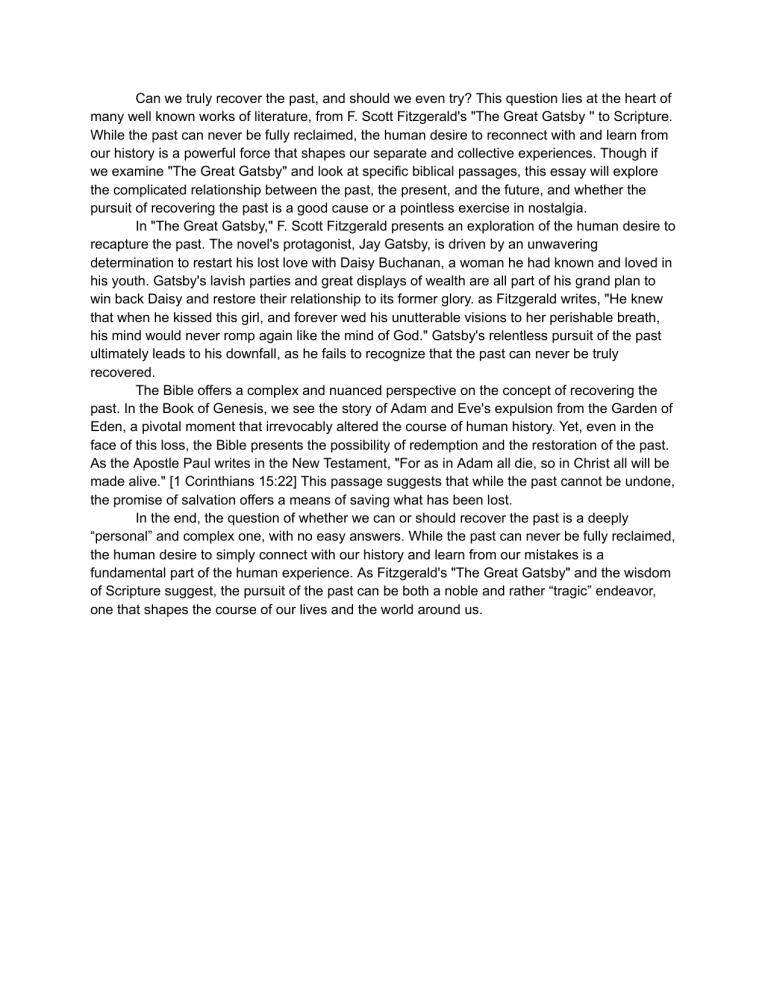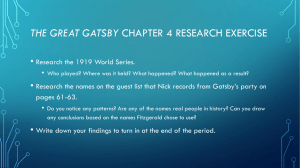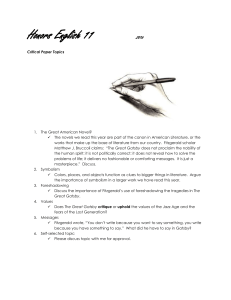
Can we truly recover the past, and should we even try? This question lies at the heart of many well known works of literature, from F. Scott Fitzgerald's "The Great Gatsby '' to Scripture. While the past can never be fully reclaimed, the human desire to reconnect with and learn from our history is a powerful force that shapes our separate and collective experiences. Though if we examine "The Great Gatsby" and look at specific biblical passages, this essay will explore the complicated relationship between the past, the present, and the future, and whether the pursuit of recovering the past is a good cause or a pointless exercise in nostalgia. In "The Great Gatsby," F. Scott Fitzgerald presents an exploration of the human desire to recapture the past. The novel's protagonist, Jay Gatsby, is driven by an unwavering determination to restart his lost love with Daisy Buchanan, a woman he had known and loved in his youth. Gatsby's lavish parties and great displays of wealth are all part of his grand plan to win back Daisy and restore their relationship to its former glory. as Fitzgerald writes, "He knew that when he kissed this girl, and forever wed his unutterable visions to her perishable breath, his mind would never romp again like the mind of God." Gatsby's relentless pursuit of the past ultimately leads to his downfall, as he fails to recognize that the past can never be truly recovered. The Bible offers a complex and nuanced perspective on the concept of recovering the past. In the Book of Genesis, we see the story of Adam and Eve's expulsion from the Garden of Eden, a pivotal moment that irrevocably altered the course of human history. Yet, even in the face of this loss, the Bible presents the possibility of redemption and the restoration of the past. As the Apostle Paul writes in the New Testament, "For as in Adam all die, so in Christ all will be made alive." [1 Corinthians 15:22] This passage suggests that while the past cannot be undone, the promise of salvation offers a means of saving what has been lost. In the end, the question of whether we can or should recover the past is a deeply “personal” and complex one, with no easy answers. While the past can never be fully reclaimed, the human desire to simply connect with our history and learn from our mistakes is a fundamental part of the human experience. As Fitzgerald's "The Great Gatsby" and the wisdom of Scripture suggest, the pursuit of the past can be both a noble and rather “tragic” endeavor, one that shapes the course of our lives and the world around us.


